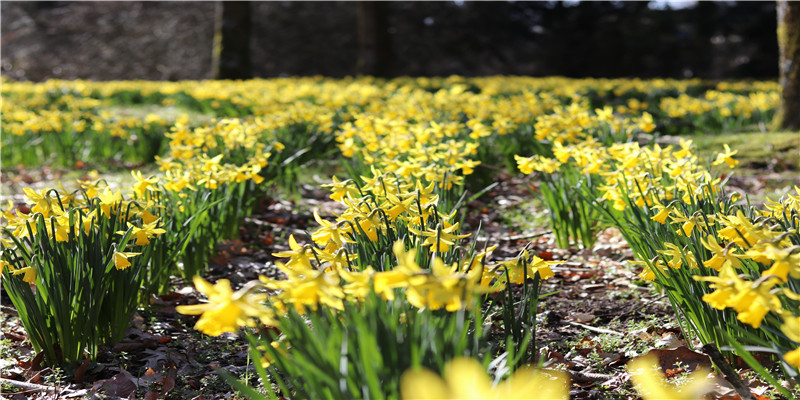
新目标英语课本重点复习
Grade Seven (A)
1. What’s her family name? (P5)
● family name= last name 姓 first name = given name 名
●姓名顺序:
英美人的名在前,姓在后。如:Jim Green中,Jim 是first name/ given name, Green是family name/ last name;
中国人的姓在前,名在后。
(1)单姓单名:姓与名的首字母分别大写。如:Li Ping
(2 ) 单姓双名:名的双字写在一起,只大写第一个名的首字母。如:Yang Liwei
(3 ) 复姓:把复姓写在一起,只大写第一个字母。如:Zhuge Liang
●family(家庭)、class(班级),作主语,谓语用单数形式。
family(家庭成员)、class(同学们),作主语,谓语用复数形式。
如:My family were eating dinner when uncle Li came in. I have a family, the family is a happy one.
2. Thanks for the photo of your family. (P 17)
●Thanks = Thank you Thanks a lot = Thank you very much.= Many thanks.
●Thanks for sth./doing sth. 谢谢你…… Thanks for your help. Thanks for helping me with my English.
Thanks to…多亏…,由于… Thanks to trees and flowers, our school is becoming more and more beautiful.
●a photo of mine 我的一张照片 a photo of me 一张我本人的照片
3. Here is my family photo. ( P17)
●以here, there等副词开头的句子,主谓倒装。(主语为代词时则不倒装)
如:Here comes the bus. Here is your pen. Here you are.=Here it is. Not only have I been to Beijing, but also I have been to Taiyuan.
4. Please take these things to your brother. Can you bring some things to school?(P23)
●take:把东西从此处带走。 bring:把东西由别处带来。 fetch/get:去把东西带来(go and bring) carry:携带,搬运(无方向性)
●some和any都可以修饰可数名词复数和不可数名词。区别如下:
some用于肯定句中,如果用于疑问句,则表示希望得到肯定的回答或表示诚意。
any用于否定句、疑问句和条件状语从句,如果用在肯定句则表示“任何一个”的意思。
5. That sounds good.(P27)
●系动词后用形容词作表语。sound/seem/look/become/get/turn/taste/feel/smell/touch+adj.
●sound:声音的总称。 noise:噪音 voice:嗓音
6. Do you like bananas?(P31)
●like sb. to do sth. like sb. not to do sth. 以此类推:want,tell,teach,ask,
●like doing sth.:一贯性喜欢做某事,经常性喜欢做某事 like to do sth. 具体某一次喜欢做某事
●like v. 喜欢 prep.介词 像……一样
7. How much is this T-shirt? (P41)
●How much is/are……? ……多少钱? It’s/They’re……
●How much 修饰不可数名词;How many 修饰可数名词复数 它们都是“多少”的意思。
8. Can I help you? (P43)
售货员招呼顾客:Can I help you?=What can I do for you?=May I help you?
顾客告诉售货员:Yes, please. I want to buy…/I’m looking for…/I’d like to buy… 或者:No, thanks. I only have a look.
询问顾客想买东西的特征:What color/size/kind do you want?
向顾客推荐商品:What/How about this one? This one is cheap and nice.
顾客询问价格:How much is/are…? How much does it cost? What’s the price of it?
买卖达成:I’ll take/have/buy/get it.
9. When is your birthday? How old are you?(P49)
询问年龄:How old are you? What’s your age?
回答年龄:主语+be+数词 (+years old)
●He is an eight-year-old boy.= He is eight years old.
●how old, how often, how soon, how far, how long, how many, how much, how many times,
10. I want to see an action movie. (P53)
●want sth. want to do sth. want sb. to do sth. want sb. not to do sth.
●look:发生看的动作 look at… 看…… see:看见没有的结果
listen:发生听的动作 listen to… 听…… hear:听见没有的结果
watch: 强调观看运动着的事物或影像。如:看电视,看比赛,看电影,看表演等
read: 阅读,朗读 如:看书,看报,看信,看杂志,看地图
11. Can you play the guitar? (P 59)
●can, may, must, need是情态动词,后面必须跟动词原形一起构成谓语。
●play the + 乐器 play +球/棋/牌类
12.What a funny time to eat breakfast! (P67)
感叹句:
family name表示姓还是名How + adj./adv. (+ 主语+谓语)! 如:How hard he works!
What a/an + adj. +名词单数(+ 主语+谓语)! What + adj. +名词复数(+ 主语+谓语)! What + adj. +不可数名词(+ 主语+谓语)!
如:What bad weather/music/news/water/advice it is!
单词归类记忆:
乐器:guitar, drum, piano, trumpet, violin
球类:football, soccer, basketball, volleyball, baseball, tennis, ping-pong
星期:Sunday, Monday, Tuesday, Wednesday, Thursday, Friday, Saturday
月份:January, February, March, April, May, June, July, August, September, October, November, December
电影:action movie, comedy, documentary, thriller, Beijing Opera, cartoon
Grade Seven( B)
1. She’s from Japan. (P1)
●be from= come from
●国家—人—语言
China—Chinese—Chinese America—American—English England—Englishman—English Canada—Canadian—English
Germany—German—German France—Frenchman—French Italy—Italian—Italian India—Indian—Indian
2. My favorite subject in school is P.E. It’s fun.(P5)
●one’s favorite……
●V+doing
have fun, be busy, can’t help, give up, look forward to, be/get used to, feel like, have trouble/problem/difficult/ a hard time, pay attention to, be worth, keep on, put off, end up, mind, finish, keep, practice, enjoy, permit, spend, keep, continue, consider, suggest, can’t help, miss +doingsth
3. The pay phone is across from the library.(P8)
●across from= be opposite to 在…的对面
●询问方向:
Where’s the nearest…? Which is the way to…? How can I get to the …? Is there a … near here?
Can you tell me the way to the …? I don’t know/ I want to know/ Could you tell me where …is?
●指点方向:
Go/Walk along/across this road/street. Take the first/second/third turning on the left/right. It’s about…kilometers form here.
The …is along the road on the right. It’s over there on the right. It’s quite far from here.
4. What does she do?(P19)
现在的职业:What does sb. do? What am/is/are sb? What’s sb’s job?
将来的工作:What does sb. want to be? Sb. wants to be…
5. How’s the weather in Beijing? It’s sunny.(P31)
●How is the weather today?= What’s the weather like today?
●sun—sunny wind—windy cloud—cloudy snow—snowy rain—rainy fog—foggy
6. Hi, Alice? This is Bob.( P33)
打电话给某人:May/Can/Could I speak to…? I’d like to speak to…
询问对方是谁:Is that…(speaking)? Who’s that? Who’s calling/speaking, please?
自我介绍:This is …(speaking)。 …is speaking. Hello, …here.
转告某人接电话:You’re wanted on the phone. There’s a call/phone for you. Someone wants you on the phone.
转告的人就在身边:It’s for you.或For you.
请对方稍等:Hold on (the line), please. Hold on for a moment. Don’t hang up, please.
7. She never stops talking.(P43)
●对频率提问,用How often. ( never, ever, sometimes, often, usually, once , twice, three times a day, hardly, hardly ever )
●stop to do sth.停止现在的事,去做另一件事。 stop doing sth. 停止做某事
8. It was time to go home. (P58)
It’s time to do sth. It’s time for sb. to do sth. It’s time for sth.
9. I found a little boy crying in the corner.(P63)
●感官动词:不论感官动词是动词的什么形式,其后只有两种形式。
(1)see/watch/hear/notice/find sb. do sth. ……某人做了某事 (全过程)
(2)see/watch/hear/notice/find sb. doing sth. ……某人正在做某事(正在进行)
●in the corner 在一角/角落里 at the corner 在拐角处
10. That made me feel very happy.(P63)
●make/let/stay/keep sb. + adj.
●make/let sb. do sth. 在被动语态中,省略的to要还原。
●make sb. sth. = make sth. for sb. 为某人做……
●make oneself done 让某人被……
11. Don’t arrive late for class.(P71)
●be late be late for
●arrive in + 大地方 arrive at + 小地方 get to + 地方 reach + 地方
注意:home, here, there, upstairs, downstairs, abroad 是副词,他们前面的介词要去掉。










